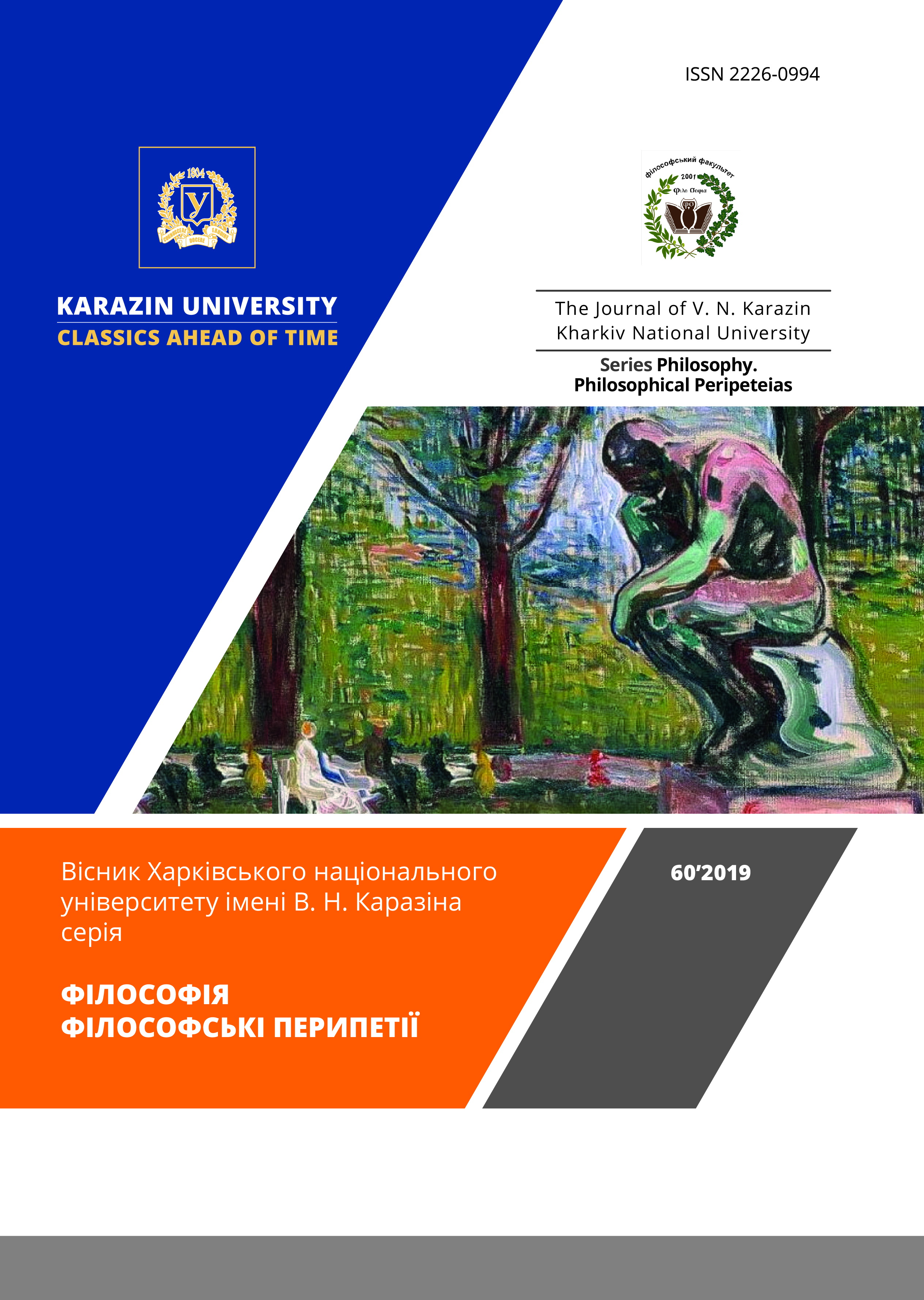SEXUALITY IN A CONTEXT OF SPECULATIVE POSTHUMANISM: HUMAN-POSTHUMAN RUPTURES AND DISCONNECTIONS
Abstract
In this article human-posthuman ruptures and disconnections both in comprehension and in practices, as well as the possibility of epistemological contingency contemporaneously are investigated. This means that an epistemological ruptures and an ontological disconnections of sexuality both differ from one another, and also join together. Since ancient times both sensitive and sensible practices of sexuality were considered the best mode to concern to sexual care of self. It has shown that, in relation to sexuality, a correlation of epistemological discontinuity and continuity is possible. Sexuality, which is actualized with the help of both natural, vital and death, annihilative drives, fits into the context of onticology as a posthuman ontology. Being connected with the thermodynamics of infinitesimal vital parts, anonymous strange strangers, singularities, it turns out to be especially awesome. Such a mode of sexuality is not necessarily reproductive; rather, it unfolds in the fluid space of non-presence and at the same time determines this space. It emphasizes that that the cos mo‑illogical becoming of posthuman leads to negentropy or extropy as vitality. Following this position, the foucaultian conception of the care of self mirrors lacanian graphs of sexuation in a context of object-oriented ontologies in comparison with philosophies of presence. It is recognized that this is the sexuality of the productive disconnection and the pleasure cosmic dissolution. This article concludes by illustrating that the mode of sexuality of Speculative Posthumanism is contingent with the Libidinal Materialism or Vital Posthumanism in a context in which the sexuality of Wide Human Descendants (WHDs) is thought to be oriented to that which is pleasure and is differentiated.
Downloads
References
Foucault, M. (1978). The History of Sexuality (Vol. 1: An Introduction). N.-Y.: Pantheon.
Foucault, M. (1985). The History of Sexuality (Vol. 2: The Use of Pleasure). N.-Y.: Pantheon.
Foucault, M. (1986). The History of Sexuality (Vol. 3: The Care of the Self). N.-Y.: Pantheon.
Gibson, W. (1986). Count Zero. London: Victor Gollancz Ltd. Retrieved from http://project.cyberpunk.ru/lib/count_zero.
Hauskeller, M. (2014). Sex and Posthuman Condition. N.-Y.: Palgrave Macmillan.
Heim, M. (1991). The Metaphysics of Virtual Reality. N.-Y.: Oxford University Press.
Hickman, S. C. (2012a). Libidinal Materialism: Nick Land’s Philosophy of Desire. Retrieved from https://socialecologies.wordpress.com/2012/11/04/libidinal-materialism-a-philosophy-of-desire.
Hickman, S. C. (2012b). The Poem of the Sea: Speculative Materialism and Realism. Retrieved from https://socialecologies.wordpress.com/2012/10/09/the-poem-of-the-sea-speculative-materialism-and-realism.
Hickman, S. C. (2017). The Posthuman Disconnection. Retrieved from https://socialecologies.wordpress.com/2017/07/27/the-posthuman-disconnection.
Land, N. (1992). The Thirst for Annihilation: Georges Bataille and Virulent Nihilism (An Essay in Atheistic Religion). L.: Routledge.
Larvalsubjects. (2010, June 28). Lacan’s Graphs of Sexuation and OOO. Retrieved from https://larvalsubjects.wordpress.com/2010/06/28/lacans-graphs-of-sexuation-and-ooo.
MacCormack, P. (2018). Posthuman Sexuality: From Ahumanity to Cosmogenic Desire. In C. Åsberg & R. Braidotti (Eds.), A Feminist Companion to the Posthumanities (pp. 35–44). Dordrecht; Heidelberg; L.; N.-Y.: Springer.
Sex and The Singularity. (2009, October 9). Retrieved from http://hplusmagazine.com/2009/10/09/sex-and-singularity.
Roden, D. (2015). Posthuman Life: Philosophy at the Edge of the Human. N.-Y., L.: Routledge.
Roden, D. (2012). The Disconnection Thesis. In A. Eden, J. Søraker, J. Moor & E. Steinhart (Eds.), The Singularity Hypothesis: A Scientific and Philosophical Assessment (pp. 281–300). Berlin: Springer.
Authors who publish with this journal agree to the following terms:
- Authors retain copyright and grant the journal right of first publication of this work under the terms of a license Creative Commons Attribution License 4.0 International (CC BY 4.0).
- Authors are able to enter into separate, additional contractual arrangements for the non-exclusive distribution of the journal's published version of the work (e.g., post it to an institutional repository or publish it in a book), with an acknowledgement of its initial publication in this journal.
- Authors are permitted and encouraged to post their work online (e.g., in institutional repositories or on their website) prior to and during the submission process, as it can lead to productive exchanges, as well as earlier and greater citation of published work.






3.gif)




